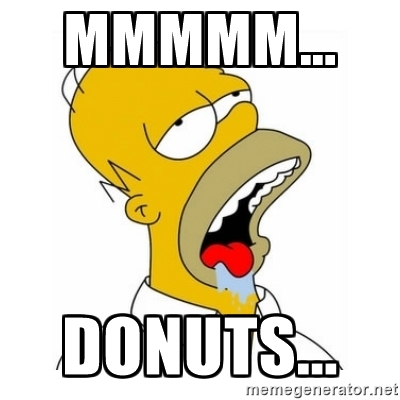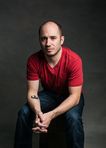On Getting Rejected
I finished my first novel in 2005, when I was 25 years old. Let's put aside the fact that the book is terrible, because, at the time, I didn't think it was. But, trust me, it is. I was fresh out of the master's program at Northwestern University, where I studied under two MacArthur winners (you know, the genius grant) and a Whiting recipient. To say I learned a lot would be like saying you went to a Trump rally and thought most of what he said was pretty factual. It isn't. And learned a ton about writing, and reading, at Northwestern.
That said, I was the only student in my graduating class who was leaving the program with a novel in hand. Most had short story collections, a few were essayists. The point is that I felt like I was walking out of the program with the most complete, publishable manuscript in my hands. It was a novel, a completed novel that I'd written under the guidance of literal geniuses. I had visions of Michael Chabon, who's first novel was also written when he was a grad student, dancing in my head. It would be a slam dunk to get my book published, right? Welllllll...
Not so much.
The sure thing I had envisioned in my mind—getting a publisher, getting an agent, establishing a career as an author—turned out to be complete misjudgment of so many things, I can't even begin to list them all. Least of which was how good the book actually was (not very) and how true I was staying to myself as a writer (I wasn't). It all added up to an oversized pile of disappointment and, quite frankly, heartbreak.
First I was rejected by publishers, the ones that were gracious enough to read submissions without representation. Clear across the board, I was denied. And we're talking form rejections here—not a single personal note of encouragement from an editor in the bunch. Then, I went to try and find an agent. I spent months and months cold-emailing people I found on Publisher's Marketplace and Media Bistro (and other internet searching) and found no interest this route either. Not a single agent gave me the time of day, and they shouldn't have. I wasn't close to having my shit together, and any real professional could smell how raw I was from a mile away.
All the while, I went back to writing short stories in the hopes of accumulating a few publishing credits. And guess what? Those were all rejected, too. Everywhere from n + 1 to, I don't know, the University of Carolina Tech Journal of the Arts sent the exact same message:
Nope.
By the ripe old age of 27, I felt like Lieutenant Murtaugh, in that I was “getting too old for this shit.”

I looked at Jonathan Safran Foer and Dave Eggers, who had both published their first books at like 14 and 17, respectively, and it crippled me. But that, right there, is the start of the toxic thinking that we all internalize: We all make the mistake of setting our barometers to outliers and wunderkinds, not the norm. For every Eggers, there's hundreds of writers who spend years and years chipping away at earning a bona fide career. A writing teacher of mine once said it perfectly, when someone asked him how he achieved his success. He said, simply, that he “outlasted everyone else.”
Ten years. That's seems to be the going standard for the time it takes to go from starting on the path that takes you from amateur writer to writing being your career. And the starting date isn't the school newspaper you wrote for in junior high. Or the first story you wrote when you were nine. No no no. We're talking your first professional publication as an adult with a legitimate outfit. It's ten years from that point. I actually quit my day job this past February, which put me just over the ten-year mark.
And I'm still rejected to this day. Some projects work, some projects don't. Some are a fit for publishers, some aren't. We all get rejected, all the time (well, ideally less so as you go), but the trick is to keep going. Like my teacher said, making it as a writer is a marathon, not a sprint. And some writers never “make it” in the way they, or others, expect. For every known, “big-name” writer, there's dozens of other professional writers who you'd never know are out there getting regular work and making a good living. Success, first and foremost, is about being able to survive, and you can survive without being a celebrity. Trust me, you can.

The problem is that we don't see these writers. We tend to only see the mega-successful, which makes every rejection all the more painful because, in our heads, they put us further and further away from reaching that coveted level. Not only is that standard unnecessary (it would be great, but, again, there are other ways), it also twists thinking into confusing how success is defined.
In addition to making the mistake of setting the bar for success an unrealistic levels, we all have a tendency to put success over vision. I did it, and it really messed me up, for a lot of years. We all love writing and storytelling, we want to be able to do it all the time—the problem, though, is the things we lose sight of to get there. For me, and others I know, I ended up going astray from who I was as a writer. I was told, as an undergraduate, that sci-fi didn't sell, and it was a waste to pursue. This teacher, in fact, forbid me to turn in any genre fiction in her class—and that was the second time that happened to me. I was surrounded by students who were all writing the same domestic malaise short stories, which were the “in” thing at the time. The more you sounded like Cheever, the better off you were.
Except I didn't want to be Cheever. Or Ford. Or whoever. I never did. But that's where I could fit in, with my class and the publishing industry, so I shifted away from what I was really passionate about writing because I placed achieving success over what was really important—finding my voice and developing compelling themes and ideas that would make for strong, original fiction. That, ultimately, is what counts. It may take longer to find success this way, but I can almost guarantee that writing something that your heart isn't into will never get you where you want to be. People can detect fraudulent writing, just as easy as they can detect writing that's driven by a great, passionate voice. I was detected, big time, and it nearly derailed my career. I was on the cusp of giving up on writing, having been buried by rejections and having lost my sense of direction. If it wasn't for my wife urging me to get back to my basics and write what I love, I'd probably be, I don't know, working at Krispy Kreme or something right now. Which I guess wouldn't be too bad....

The thing about rejection is this: Most times, when you're rejected, it has nothing to do with you or your talent. You've heard it a million times: it's timing, it's creating opportunities for yourself, it's positioning yourself to be at the right place at the right time. “Showing up is eighty percent of life,” Woody Allen once said, and he's right. To make it as a writer, you have to show up again, and again, and again, and again. Do things the right way, and eventually, you'll find yourself doing this crazy thing for a living.



